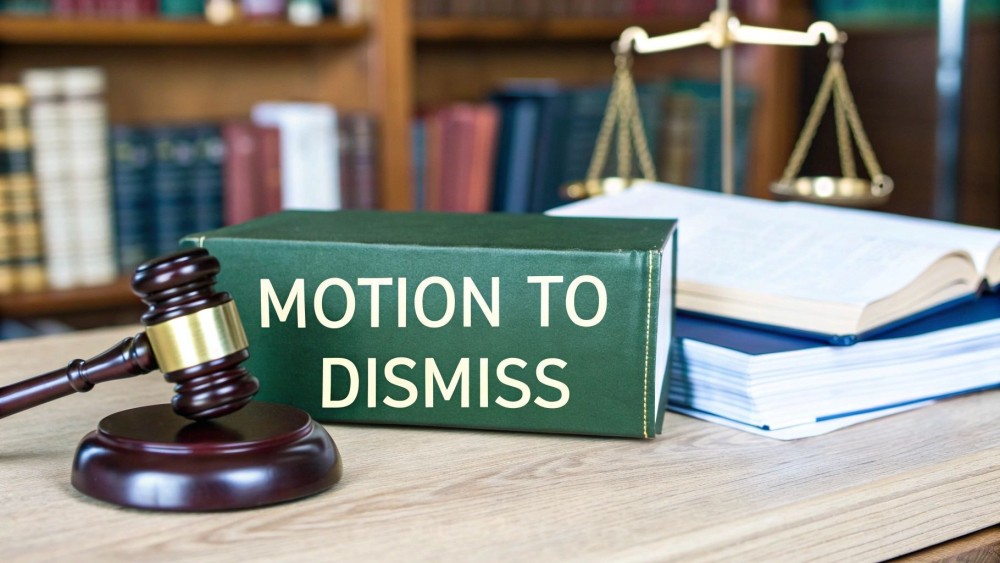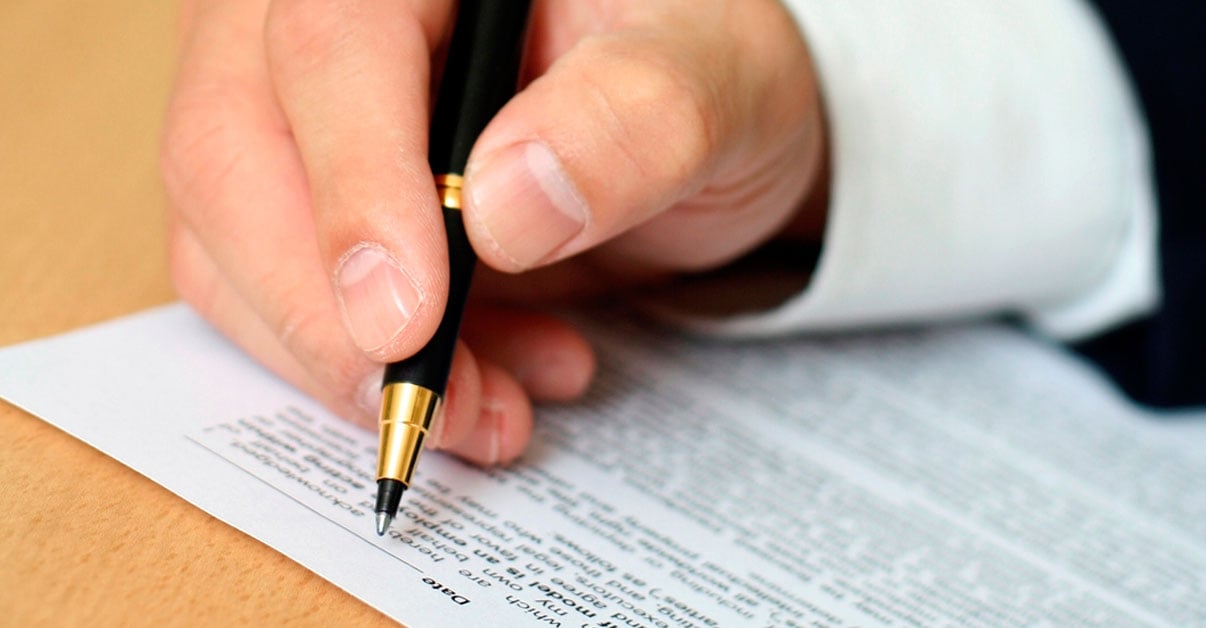
Master best practices for a motion to dismiss for improper venue to safeguard your case from procedural errors. Legal Husk offers expert drafting for attorneys and pro se litigants seeking reliable court documents.
Motion to Dismiss for Improper Venue: Best Practices
Imagine launching a lawsuit with meticulous preparation, only to encounter an immediate obstacle because the case was initiated in a court that lacks the proper statutory connection to the parties or events, causing unnecessary extensions in timelines, inflated legal costs, and the possibility of your arguments being weakened before substantive review even begins. This all-too-frequent issue in civil litigation arises when venue rules are disregarded, compelling defendants to engage in avoidable battles that deplete valuable resources and divert focus from the core disputes at hand. However, a carefully constructed motion to dismiss for improper venue acts as a vital early-stage remedy, enabling defendants to contest the plaintiff's selected forum decisively, which can result in either outright dismissal or a transfer to a more suitable jurisdiction that better serves fairness and efficiency. Through mastering the subtleties of venue regulations and applying proven drafting techniques, both legal professionals and self-represented individuals can fortify their positions right from the inception of the case, mitigating risks that often ensnare those unfamiliar with procedural intricacies. This extensive guide examines the fundamental aspects of these motions in detail, delivering actionable advice, statutory insights, and tactical approaches customized for diverse litigants, while demonstrating how Legal Husk's proficient drafting solutions can transform your submissions into resilient tools that endure rigorous examination and facilitate advantageous resolutions.
Table of Contents
What Is a Motion to Dismiss for Improper Venue?
A motion to dismiss for improper venue functions as an essential procedural mechanism that defendants employ to dispute the legitimacy of the court chosen by the plaintiff, contending that the selected location contravenes established statutory criteria and may impose inequitable hardships on the involved parties. Rather than engaging with the factual or legal substance of the allegations, this motion concentrates solely on verifying if the venue complies with mandates related to elements like the defendants' domiciles or the sites of pivotal occurrences, thereby upholding a system where cases are adjudicated in locales that enhance operational smoothness and equity. Through timely assertion of this defense, defendants can halt progression in an ill-suited jurisdiction, which otherwise might engender complications such as challenges in procuring testimonies or handling evidentiary materials, ultimately preserving the judicial framework's credibility and effectiveness. At Legal Husk, we have supported a multitude of clients in formulating these motions, illustrating how a precisely worded contention can alter the litigation's trajectory from the very start, by exposing any foundational weaknesses in the plaintiff's initial filing decisions and granting the defense a significant early edge.

The role of venue in the broader context of litigation is profound, as it directly affects the practicality for participants, the accessibility of regional assets, and potentially the inherent predispositions across various judicial areas. In the federal system, for example, statutes dictate that venue must be appropriate to circumvent avoidable strains, and in instances of misalignment, judicial bodies retain the power to dismiss the matter entirely or relocate it to a fitting district when it aligns with principles of fairness, as specified in applicable procedural guidelines. Such discretionary authority highlights the necessity for motions that not only substantiate venue discrepancies via empirical data but also convincingly argue to the presiding judge that remedial measures are essential, possibly by depicting how persistence in the erroneous forum would disadvantage the defendant unfairly. Self-represented litigants, frequently unacquainted with these finer points, find these motions especially intimidating, commonly leading to forfeited chances or procedural missteps that exacerbate their courtroom difficulties and prolong resolutions unnecessarily.
Legal Husk establishes itself as the preeminent specialist in developing litigation materials that confront these challenges directly, utilizing our vast background to produce motions that have adeptly managed intricate venue conflicts in numerous legal settings. Our methodology includes tangible illustrations, contrasting situations where inadequate venue choices precipitated dismissals with those where solid motions facilitated rapid corrections, thereby underscoring the practical distinctions. Legal professionals and laypersons consistently rely on Legal Husk, given that our outputs are engineered to endure adversarial challenges, delivering a degree of accuracy and tactical acumen that standard templates fall short of, which in turn assists clients in evading the typical snares resulting in adverse judgments and inefficient proceedings.
The Legal Basis for Improper Venue Motions
The core statutory structure supporting motions to dismiss due to improper venue is chiefly embedded in Federal Rule of Civil Procedure (FRCP) 12(b)(3), which authorizes defendants to contest venue prior to addressing the complaint's core content, thereby guaranteeing that procedural irregularities are rectified expeditiously to uphold courtroom productivity. This provision works synergistically with 28 U.S.C. § 1406(a), granting district courts the ability to dismiss or shift cases initiated in unsuitable venues when it furthers judicial fairness, thus deterring plaintiffs from securing undue benefits via selective forum choices. Defendants, by referencing these clauses, can assert that the picked district does not satisfy standards including defendant habitation or the venues of significant claim-related incidents, as elaborated in 28 U.S.C. § 1391, which furnishes a thorough framework for ascertaining valid venue in civil disputes. Legal Husk harnesses this legal interconnection within our drafting offerings, making certain that motions cite exact provisions to construct a persuasive rationale for dismissal or relocation, tailored to the unique circumstances of each case.
Parallel yet jurisdiction-particular regulations in state courts govern venue disputes, frequently necessitating early motion submissions to prevent forfeiture, akin to federal stipulations. In California, for instance, Code of Civil Procedure § 396a permits dismissal or transfer for venue mismatches, generally linked to aspects like harm locations or contractual fulfillments, whereas New York's CPLR § 510 outlines bases for venue alterations grounded in practicality or neutrality. Texas, under Civil Practice and Remedies Code § 15.002, rigorously controls venue by linking it to the defendant's county of residence or action origin, with motions demanding affidavit backing to validate impropriety assertions. These differences demand customized strategies, and non-compliance can yield relinquished defenses, stressing the value of area-specific proficiency in composition to avoid procedural oversights and enhance motion efficacy.
Influential Supreme Court decisions additionally fortify the legal groundwork, supplying interpretive direction that shapes contemporary tactics and applications. The ruling in Goldlawr, Inc. v. Heiman (1962) confirmed that relocations pursuant to § 1406(a) are allowable even without initial court personal jurisdiction, favoring equitable outcomes over rigid terminations to sidestep limitations period obstacles. In a more contemporary context, TC Heartland LLC v. Kraft Foods Group Brands LLC (2017) revolutionized patent venue by confining it to the defendant's incorporation locale or infringement sites with consistent business operations, triggering a rise in motions and elevated defendant triumphs in niche legal battles. Legal Husk embeds these adjudications into our motions, evident in our motion to dismiss services, to formulate contentions that align with prevailing court understandings and amplify convincing power across varied litigation scenarios.
When Should You File a Motion to Dismiss for Improper Venue?
Identifying the prime moment for submitting a motion to dismiss on grounds of improper venue is crucial, since federal guidelines per FRCP 12(g) and 12(h) require these defenses to appear in the preliminary reply or face abandonment, underlining the imperative for immediate intervention to retain this procedural protection. Practically speaking, this entails presenting the motion ahead of an answer submission or merging it with additional initial defenses, permitting defendants to tackle venue concerns without delving into core litigation that might suggest forum acceptance. Tactical evaluations are also vital, including assessing if a relocation could situate the matter in a disadvantageous area, yet the dominant rule is swift action to interrupt the plaintiff's drive and avert defense loss via procrastination, thereby maintaining strategic flexibility throughout the proceedings.
Jurisdiction-unique schedules introduce further intricacies, obliging litigants to conform to regional procedural statutes for motion timeliness validation. In North Carolina, civil venue challenges must precede content-focused sessions to avert tacit relinquishment, while California's CCP § 396a protocols insist on filings prior to demurrers or responses. Contemporary statistics reveal that prompt motions in patent disputes following TC Heartland yield 60-70% success, accentuating the merit of early engagement fortified by substantial proof. For self-represented parties, grasping these timeframes is particularly advantageous, as overlooked deadlines can culminate in irreversible procedural detriments that hinder overall case advancement and resolution prospects.
Legal Husk aids clients in maneuvering these scheduling subtleties via our pretrial briefs and motion creation, guaranteeing submissions are both adherent and optimally timed for peak influence in diverse legal contexts. By embedding venue scrutiny at the outset, we assist in circumventing frequent errors like discovery involvement that might forfeit defenses, offering reassurance and a fortified protective stance against adversarial tactics. Avoid allowing deadlines to compromise your litigation efforts—reach out to Legal Husk immediately to obtain specialized counsel on the ideal timing and method for your motion deployment, ensuring procedural advantages are fully leveraged.
Step-by-Step Guide: How to Draft and File Your Motion
Initiating the drafting of a motion to dismiss for improper venue commences with an accurate caption encompassing the court's designation, participant specifics, and docket identifier, establishing a formal demeanor while adhering to area formatting norms to preclude swift denials based on technicalities. Subsequently, the introductory segment ought to explicitly declare the motion's foundation under FRCP 12(b)(3) or comparable state directives, concisely delineating the bases for venue impropriety claims without venturing into substantive merits, thus maintaining focus on procedural rectitude. This portion must be bolstered by a factual synopsis that elaborates particular rationales, such as absent defendant residency or unrelated incident locales, incorporating affidavits or attachments to corroborate assertions and fortify the evidentiary framework essential for judicial persuasion.
The juridical contention constitutes the motion's nucleus, wherein references to enactments like 28 U.S.C. §§ 1391 and 1406, coupled with antecedents such as Goldlawr, elucidate why dismissal or relocation is justified in fairness's pursuit. In this phase, counsel should compellingly refute the plaintiff's venue selection, potentially underscoring encumbrances like testimonial inconveniences or fiscal ramifications, while soliciting precise remedies such as non-prejudicial dismissal to align with strategic objectives. Augmenting with a legal memorandum can deepen the analysis, countering conceivable rebuttals and solidifying the motion's robustness against scrutiny, thereby enhancing its prospects for favorable adjudication.

Submission protocols differ across jurisdictions but generally encompass digital lodging via platforms like ECF in federal arenas, paired with opponent notification to fulfill procedural justice obligations and prevent subsequent disputes. Foreseeing resistance, formulate a response document that reaffirms central tenets and rebuts any waiver or validity assertions, maintaining argumentative coherence. Legal Husk optimizes this sequence through our civil litigation services, generating thorough motions that reduce inaccuracies and elevate triumph probabilities—procure yours promptly to traverse the filing landscape with assurance and procedural mastery.
Best Practices for a Successful Motion to Dismiss for Improper Venue
For attaining victory with a motion to dismiss predicated on improper venue, anchoring the contention in firm proof is paramount, exemplified by appending affidavits verifying defendant habitation or operational scopes beyond the designated district, thus furnishing tangible refutation to any nebulous plaintiff declarations. Foreseeing counterpoints, including substantial linkage assertions per § 1391, demands a forward-thinking methodology wherein the motion tackles jurisdictional intersections and stresses practicality elements like testimonial accessibility, ensuring comprehensive coverage. Integrating descriptive components, such as illustrative vignettes depicting excessive burdens, can render the motion more engaging, swaying the judiciary toward recognizing that fairness mandates dismissal or relocation, thereby aligning with statutory intents.
Empirical data additionally reinforces optimal methodologies, with research indicating exceeding 50% triumph ratios for substantiated motions, especially in venue-critical domains like intellectual property. Within state tribunals, conforming to regional imperatives—such as Texas's testimonial stipulations or California's practicality assessments—guarantees adherence and bolsters the contention's integrity. Legal Husk's established history in composing these motions, as chronicled in our motion to dismiss examples, exemplifies how bespoke tactics culminate in positive resolutions—fortify your vantage by procuring services without delay, capitalizing on our expertise for superior litigation outcomes.
Common Mistakes to Avoid When Filing
A widespread blunder in lodging motions to dismiss for improper venue involves postponing the presentation, potentially triggering forfeiture under FRCP 12(h), thereby permitting the litigation to advance in an adverse setting and diminishing defensive options. An additional recurrent lapse pertains to inadequate probative backing, wherein motions hinge on unsupported allegations instead of testimonials or records validating venue deficiencies, prompting courts to withhold relief owing to evidentiary shortages. Moreover, merging venue with personal jurisdiction matters can dilute the rationale, given these represent separate safeguards necessitating isolated examinations to evade judicial perplexity and sustain argumentative clarity.
In provincial courts, disregarding particular procedural levies or structural prerequisites, like California's relocation expenses, can impede advancement and provoke rejections, complicating the litigation trajectory. Self-represented individuals frequently succumb to these snares from inexperience, though practitioners might falter by prematurely introducing irrelevant proofs, risking procedural complications. Legal Husk alleviates these hazards via scrupulous composition in our answer services—refrain from jeopardizing your matter; engage us for flawless submissions that circumvent typical pitfalls and enhance procedural resilience.
Real-World Examples and Case Studies
Practical implementations of motions to dismiss for improper venue underscore their efficacy, as evidenced in a 2025 Southern District of New York intellectual property dispute where Judge Román approved dismissal citing absent personal jurisdiction and venue mismatch in a surveillance device contention, spotlighting the synergy between venue and jurisdictional evaluations. In a separate occurrence, the Sixth Circuit's Tobien v. Nationwide Gen. Ins. Co. (2025) elucidated responsibility allocation in venue challenges, upholding that plaintiffs shoulder the proof burden for venue legitimacy, which facilitated dismissal in that coverage conflict and set precedents for analogous defenses. Such adjudications reveal how contemporary verdicts persistently hone venue benchmarks, affording defendants tactical advantages when motions are substantiated by comprehensive evidence and aligned with evolving legal interpretations.
A de-identified Legal Husk patron in a contractual disagreement attained dismissal by evidencing negligible district affiliations, averting substantial expenditures and establishing a benchmark for comparable safeguards in commercial litigations. Delve deeper into akin accomplishments within our resources section, where we exhibit how our drafting prowess has converted prospective obstacles into triumphs, empowering clients across varied legal arenas with strategic procedural tools.
Why Professional Drafting from Legal Husk Makes the Difference
Choosing expert drafting from Legal Husk propels your motion to dismiss for improper venue above commonplace patterns, amalgamating refined legal lexicon and case-tailored tactics that garner judicial esteem and instill apprehension in adversaries. Our materials have withstood stringent dismissal oppositions, as legal practitioners depend on us for exactitude that self-crafted endeavors typically deficient, assuring conformity with progressing norms akin to those ensuing 2024 Supreme Court venue deliberations. For self-represented parties, this translates to reachable, economical aid that equalizes the arena, featuring personalized submissions that cater to distinctive jurisdictional demands and mitigate common procedural vulnerabilities.
Legal Husk's prestige derives from our accomplishments in counterclaims and associated domains, wherein we've enabled patrons to procure negotiation advantages and courtroom victories through superior documentation. Align your safeguards impeccably—consult our lawyers forthwith for unparalleled proficiency that distinguishes your filings and drives litigation success.
Frequently Asked Questions (FAQs)
What does improper venue mean in a lawsuit?
Improper venue signifies a circumstance wherein a legal action is commenced in a tribunal failing to fulfill statutory locale prerequisites, pursuant to 28 U.S.C. § 1391, which necessitates correspondence with defendant abodes, incident venues, or jurisdictional contingencies. This flaw can engender notable inefficiencies, encompassing heightened conveyance expenditures for attestors and litigants, conceivably skewing proceedings or encumbering proof exhibitions. Tribunals rectify these via motions under FRCP 12(b)(3), frequently electing relocation per § 1406(a) to ameliorate the concern in fairness's behalf, contrasting outright termination that could bias reinitiation from temporal restrictions.
For self-represented litigants, discerning improper venue prematurely averts deeper immersions in disadvantageous arenas, where regional protocols might disfavor externals and complicate advocacy efforts. Legal Husk excels in detecting and contesting such anomalies, composing motions that painstakingly delineate statutory infractions and compelling rationales for redress, thereby streamlining procedural navigation.
Through collaboration with Legal Husk, patrons acquire documents that not solely amend venue discrepancies but also reinforce holistic case methodologies, leveraging our acumen in discovery requests to unearth corroborative particulars and enhance overall litigation preparedness.

How do I know if venue is improper in my case?
To ascertain venue impropriety, scrutinize the grievance against statutes akin to 28 U.S.C. § 1391(b), verifying if absent defendant domiciles in the district, incidents lacked substantial occurrence therein, or fallback authority inapplies. Provincial divergences, like California's harm-site connections or Texas's abode imperatives, mandate analogous pleading and factual inspections to identify mismatches. Referencing jurisprudence, such as 2025 verdicts affirming plaintiff onuses, can elucidate thresholds and inform assessments.
Legal Husk proffers exhaustive case appraisals to isolate venue imperfections, weaving this into our motion formulations that anticipate adversarial retorts and fortify arguments. This proactive stance ensures clients address issues decisively, minimizing delays and optimizing procedural outcomes.
Engage us for an advisory session to evaluate your venue status and commission bespoke documents that dispel ambiguities, providing clarity and strategic direction in complex litigations.
What happens if my motion to dismiss for improper venue is granted?
Upon approval, the tribunal might terminate sans prejudice, permitting reinitiation elsewhere, or relocate to an apt district per § 1406(a), sustaining the action's continuity while rectifying the defect. Mirroring Goldlawr, relocations emphasize equity, circumventing limitations concerns and preserving claim viability. Such resolutions can tactically impair plaintiffs by altering forums, potentially shifting evidentiary or juridical dynamics to defendant favor.
Legal Husk optimizes these verdicts via proof-abundant motions, augmenting negotiation power in ensuing phases and fostering advantageous settlements. Our tailored approaches consider case nuances to pursue preferred remedies effectively.
Fortify your triumph—commission from Legal Husk immediately, leveraging our expertise to navigate post-motion landscapes with precision and confidence.
Can I file a motion to dismiss for improper venue in state court?
Affirmative, provincial codes such as Texas § 15.002 or New York CPLR § 510 facilitate these motions, emulating federal methodologies yet incorporating local subtleties like scheduling and probative mandates. Submissions must occur prematurely to evade forfeiture, substantiated by testimonials to validate claims and comply with jurisdictional peculiarities. This alignment ensures motions retain efficacy across diverse legal frameworks.
Legal Husk customizes motions for state arenas, guaranteeing adherence and vigor in addressing venue challenges unique to each locale. Our services integrate regional precedents to enhance persuasiveness and procedural integrity.
Refrain from solitary navigation—consult us for specialized state-oriented drafting that empowers your defenses and streamlines litigation processes.
What evidence do I need for a successful motion?
Indispensable proof encompasses testimonials on habitation, commercial ledgers indicating absent district connections, and records verifying extraneous incident locales. This establishes a factual bedrock resilient to opposition, bolstering judicial acceptance. Comprehensive assemblies prevent denials from evidentiary inadequacies, aligning with statutory scrutiny standards.
Legal Husk aggregates and embeds proof fluidly in our compositions, ensuring motions present irrefutable narratives that withstand challenges. Our methodical approach incorporates supplemental materials for depth.
Commission forthwith for motions underpinned by unassailable substantiation, elevating your procedural stance and success likelihood.
How long does it take to resolve a motion to dismiss for improper venue?
Resolution customarily extends 30-90 days, modulated by tribunal caseloads and oppositional intricacies, with premature submissions hastening determinations. Postponements may stem from auditions or auxiliary submissions, impacting overall litigation tempos. Understanding docket dynamics aids in expectation management and strategic planning.
Legal Husk's exact compositions curtail processing durations, prioritizing lucidity and completeness to expedite judicial reviews. We optimize filings for efficiency without compromising thoroughness.
Proceed without delay to accelerate your matter via our offerings, ensuring timely resolutions that preserve momentum and resources.
What if the court transfers instead of dismissing?
Relocation per § 1406 rectifies anomalies, transposing the action to a suitable venue whilst upholding advancement, albeit potentially misaligning with defendant inclinations. Contend against if detrimental, emphasizing burdens or inequities to sway toward termination. This discretion underscores argumentative nuance in motions.
Legal Husk tactically orients for preferred terminations when feasible, tailoring contentions to judicial preferences and case specifics. Our expertise navigates remedial options adeptly.
Consult us to refine your redress alternatives, maximizing strategic benefits in venue disputes.
Do pro se litigants succeed with these motions?
Self-represented triumphs are viable with specialized assistance, yet autonomous endeavors frequently falter from procedural lapses; data indicate elevated rates with proficient contributions. Legal Husk bolsters unrepresented parties economically, furnishing tribunal-prepared materials that bridge expertise gaps. This empowerment levels advocacy fields effectively.
We supply comprehensive documents for varied requirements, ensuring procedural compliance and argumentative strength. Our support transforms challenges into opportunities for success.
Commission from Legal Husk for self-represented assurance, delivering tools that enhance courtroom efficacy and outcomes.
What's the success rate of motions to dismiss for improper venue?
Ratios approximate 50-70% in arenas like patents post-2017, escalating with robust proof and punctual submissions. Contemporary 2025 adjudications corroborate this pattern, reflecting evidentiary and strategic influences. Monitoring trends informs predictive assessments and preparations.
Legal Husk amplifies probabilities via authoritative compositions that integrate best practices and precedents. Our track record demonstrates consistent elevations in favorable verdicts.
Abstain from mediocrity—attain excellence with us, harnessing expertise for superior litigation results.
Can forum selection clauses affect venue motions?
Affirmative, enforceable provisions can mandate venues, yet statutes might supersede if opposing public interests or imposing undue inconveniences. Meticulous motion analyses evaluate enforceability against legal frameworks. This scrutiny ensures comprehensive venue challenges.
Legal Husk appraises clauses within our offerings, embedding insights to fortify arguments and counter oppositions. Our thorough evaluations provide strategic edges.
Engage for exhaustive clause scrutinies, optimizing your procedural approaches in contract-influenced disputes.
How does improper venue differ from lack of jurisdiction?
Venue pertains to locale practicality, forfeitable and non-authoritative, whereas jurisdiction concerns tribunal empowerment, non-relinquishable if subject-oriented. Differentiating averts amalgamation errors, preserving distinct defensive integrities. This clarity enhances motion efficacy and judicial reception.
Legal Husk elucidates these in compositions, ensuring accurate safeguards that avoid conflations. Our precision bolsters overall argumentative coherence.
Commission to guarantee meticulous defenses, safeguarding your litigation from conceptual missteps.
What emerging trends affect venue in 2025?
Patterns encompass intensified examinations in APA migration and AI contentions, with 2025 Supreme Court rulings refining elucidations amid venue redirection apprehensions. These evolutions necessitate adaptive strategies for maintaining tactical advantages. Awareness facilitates proactive motion adjustments.
Legal Husk assimilates trends into motions, delivering forward-oriented compositions that anticipate shifts. Our updates ensure relevance and competitiveness.
Consult for progressive drafting that aligns with contemporary legal landscapes, empowering your cases effectively.
Conclusion
Maneuvering a motion to dismiss for improper venue requires profound comprehension of foundational elements like FRCP 12(b)(3) and 28 U.S.C. § 1406, allied with tactical scheduling, proof-supported contentions, and evasion of prevalent errors to efficaciously secure termination or relocation. This manual has probed composition phases, optimal methodologies, and practical utilizations, delineating how these motions can redirect litigations beneficially, conserving durations and assets whilst enforcing procedural equity across proceedings. Recent 2025 adjudications bolster the dynamic terrain, accentuating the exigency for exact, authoritative submissions that endure inspections and adapt to evolving standards.
As the foremost specialist in litigation composition, Legal Husk furnishes materials that practitioners and self-represented rely upon for tribunal triumphs, vastly outstripping autonomous alternatives with our validated history in withstanding terminations and driving resolutions. Reemphasizing the criticality of prompt improper venue confrontations, we assist patrons in procuring advantages and serenity through superior documentation. Eschew procedural hazards—commission your motion to dismiss for improper venue from Legal Husk's contact page promptly and dominate your matter with assurance and expertise. For supplementary counsel, peruse our FAQ or about us, exploring resources that further empower your legal endeavors.
Whether you are dealing with a complex family matter, facing criminal charges, or navigating the intricacies of business law, our mission is to provide you with comprehensive, compassionate, and expert legal guidance.